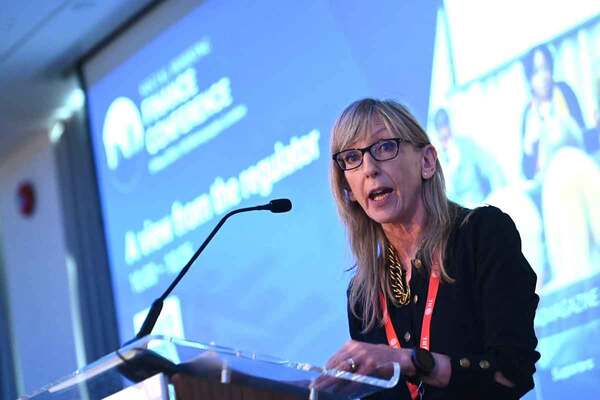You are viewing 1 of your 1 free articles
Shrinking homelessness figures caused by ‘significant staffing shortages’ at council
Staff shortages at a council meant that government figures suggesting fewer people presented as homeless are misleading, and that people were not in fact being assessed.
According to a Waltham Forest Council report on homelessness assessments, the data it provided to the Department for Levelling Up, Housing, and Communities (DLUHC) was “contrary to the national picture”.
Data was provided to DLUHC as part of the local authority’s mandatory homeless case level information collection (H-CLIC) return, which suggested that footfall – the number of people approaching for help with homelessness – in Waltham Forest declined between 2020-21 and 2021-22, and again in 2022-23.
However, the report that went before the council’s housing scrutiny committee this month said service data “confirms that significant staffing shortages, resulting in an inability to meet customer demand, is one reason why the recorded number of approaches appeared to be declining”.
“Where a service lacks capacity, it follows that the ability to undertake customer assessments and develop personal housing plans (PHP) is lost,” the report said.
Where a council is satisfied that an applicant is eligible and homeless or threatened with homelessness, it must draw up a PHP based on its assessment of their needs.
The PHP, introduced as part of the Homelessness Reduction Act in 2018, should contain the steps to be taken by both the council and the applicant to prevent or relieve homelessness.
Also introduced as part of the act, councils report their homelessness activities to DLUHC by completing the quarterly H-CLIC statistical return.
According to DLUHC’s data from Waltham Forest’s H-CLIC return, the number of homeless approaches to the council went from 3,086 in 2020-21 to 2,724 in 2021-21, to 2,363 in 2022-23.
The council’s report said: “Between April 2022 and April 2023, the council’s prevention and assessment team were around eight frontline officers and one team leader short.
“These acute staffing shortages not only led to an inability to meet customer demand but to unmanageable caseloads for staff.
“The service resorted to ‘firefighting’ – prioritising only those residents in the greatest need who were in crisis.
“It follows that opportunities for early intervention and prevention were lost as only those households who were homeless on the day of approach could be assisted.”
According to the report, after the coronavirus pandemic, which caused all housing options assessments to take place remotely, staff expressed anxiety about delivering face-to-face services, while some had no experience with this.
The report said: “We also know that face-to-face assessments are an important element in supporting officers to build a relationship of trust with residents and therefore contribute to the likelihood that actions set out in a PHP are likely to be undertaken.
“However, as the space previously used by the prevention and assessment team at Cedar Wood House had been converted to provide additional meeting rooms, this left no suitable venue from which to deliver front facing services.
“Having delivered services remotely for over three years, feedback from staff working in the council’s prevention and assessment team highlighted that very few members of staff had experience of delivering services face-to-face.
“In addition, those staff who had delivered face-to-face services historically expressed some anxieties about returning to this way of working.
“It was therefore imperative to balance the need to deliver in person services with a physical environment and training opportunities which met the needs of staff.”
According to the report, there has recently been “significant financial investment” to support a return to face-to-face appointments at Leyton Library.
“This is to create an environment that is both suitable for frontline service delivery and that provides officers with the safety and confidence to deliver in person services,” it said.
Staff were trained to support them with the transition and in September 2023, the prevention and assessment team conducted its first face-to-face homelessness assessments from Leyton Library since before the pandemic.
According to the report, work on holistic training is now underway across the housing options and support service.
“In addition, the number of full-time equivalent posts within the current structure is also being reviewed to determine whether this is fit for purpose and allows officers to manage a caseload of no more than 35 applicants; a caseload considered optimum for proactive and meaningful prevention activities,” it said.
Ahsan Khan, deputy leader and cabinet member for housing and regeneration at Waltham Forest, said: “One of the most important roles the council has is to ensure that people who approach us at risk of losing their home receive effective, sympathetic support at what is a very difficult time.
“We know how vital this is. That’s why we reviewed our homelessness assessment services to identify ways we can improve and help more people more effectively.
“The historic issues with staffing have been resolved and the prevention and assessment team is now fully staffed.
“We are also investing in our staff through training and development opportunities to motivate and retain our talented colleagues.
“At the same time, we have resumed pre-booked face-to-face appointments for residents at risk of being made homeless and established a brand new team – the housing sustainment team – to engage with people before a housing problem becomes a housing crisis. We believe preventing homelessness is the best option for everyone.”
DLUHC has been approached for comment.
Sign up for our homelessness bulletin
Already have an account? Click here to manage your newsletters












